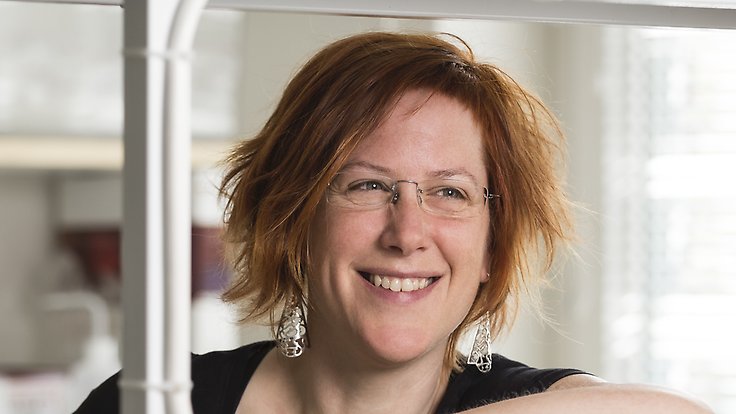Meet Joëlle Rüegg – Professor in environmental toxicology at Uppsala University

Joëlle Rüegg, Professor in Environmental Toxicology, Department of Organismal Biology, Uppsala University, Uppsala Health Summit 2023's Programme Committee Chair
We are excited to present our programme committee chair for this year’s summit, Professor Joëlle Rüegg. In this interview, Joëlle introduces us to her work and shares her perspective on the challenges around chemical pollution and its health outcomes.
What is your research interest and background?
I’m a professor in environmental toxicology, and my research focuses on the effects of endocrine disruptors on brain development. My background is in biochemistry/molecular biology, so in my research group, we’re addressing this question from a molecular point of view. However, I like to integrate my research into interdisciplinary projects where we span the whole chain from molecular insights to human data. We do this, e.g., in the Horizon 2020 and Horizon Europe projects that I’m coordinating: ENDpoiNTs and RE-MEND", says Dr. Joëlle Rüegg.
What inspires you in your research?
From the beginning, it’s been my fascination for molecular processes determining the development and functioning of an organism and my curiosity to learn more about them. Since I’ve moved into the molecular toxicology field, I also appreciate that apart from fundamental research, this field invites more applied research and science to policy activities, as testing and regulation of chemicals is high up on the EU’s agenda. I really like this combination. And I get inspired by working across disciplinary borders; it takes time and is sometimes hard at first, but it leads to completely new ideas and concepts. Last but not least, I very much like to be a teacher and mentor for young scientists. I enjoy supporting and inspiring them and getting inspired by their ideas and points of view", says Dr. Rüegg.
What made you interested in accepting the role of chairperson of the program committee for this year’s summit?
The topic perfectly fits my interests and I see it as a great opportunity to make it, visible and discuss it from a science to a policy angle", says Joëlle Rüegg.
Uppsala Health Summit 2023 aims to provide an arena for bringing forward recommendations for policy measures to reduce the impact of chemical pollution on our health. What will it take for actors to implement and respect the existing treaties on reducing chemical pollution?
This is a difficult question that we will undoubtedly explore at the summit. But clearly, the question needs prioritization on all political agendas, which would be completely justified considering that (chemical) pollution is one of the most common causes of premature deaths. When considering the health effects of endocrine disruptors alone, the yearly burden on the healthcare system is estimated to be about 157 billion Euros in Europe and 340 billion in the US. One of the problems is that there are substantial commercial interests in not regulating the chemicals on the market. I think this is one of the main reasons why regulation and innovations to develop safer chemicals and products are slow. But there is also a more fundamental question to it, which applies, of course, to most of the large issues we have today: the life and consumption patterns that the “western world” has established as “the normal.” We also have to address the question of what is essential for our lives and what are unnecessary habits animated by advertisements, standards, fashion, etc. As long as there is a market for cheap and fast-changing products, we will not be able to take care of either safe production or safe disposal (or circularity)", says Rüegg.
In what ways can Uppsala Health Summit contribute?
It will most likely not solve the challenges. But the aim should be that it will contribute with raised awareness of how urgent it is to act on chemical pollution and will identify concrete actions for different stakeholder groups. I also anticipate inputs to ongoing processes such as the United Nations Environment Assembly’s efforts to develop a legally binding instrument on plastic pollution or the establishment of the international panel on chemical pollution and waste", says Dr. Joëlle Rüegg.
